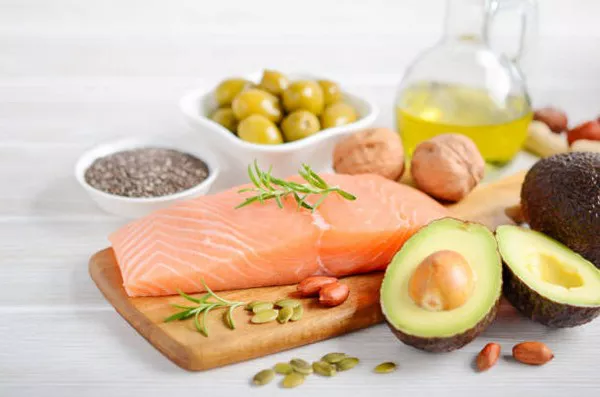Muscle recovery is a crucial component of any fitness regimen. Proper nutrition not only helps in muscle repair but also enhances performance and prevents injuries. This comprehensive guide will delve into what you should eat for effective muscle recovery, offering practical advice and easy-to-follow recommendations.
Understanding Muscle Recovery
Muscle recovery is the process your body goes through to repair and rebuild muscle fibers after exercise. During this time, your muscles adapt to the stress of the workout, leading to strength and size gains. Proper nutrition plays a significant role in this process, providing the essential nutrients needed for muscle repair and growth.
The Role of Protein
Protein is the cornerstone of muscle recovery. It provides the amino acids necessary to repair and build muscle tissue.
High-Quality Protein Sources:
Lean Meats: Chicken, turkey, and lean cuts of beef are excellent sources of protein.
Fish: Salmon, tuna, and other fish are not only high in protein but also contain omega-3 fatty acids, which reduce inflammation.
Eggs: Eggs are a complete protein source and contain essential amino acids for muscle repair.
Dairy Products: Greek yogurt and cottage cheese are rich in protein and also provide calcium for bone health.
Plant-Based Proteins: Beans, lentils, tofu, and tempeh offer protein for those following a vegetarian or vegan diet.
Carbohydrates for Energy
Carbohydrates are crucial for replenishing glycogen stores depleted during exercise. They also help with protein absorption and muscle recovery.
Healthy Carbohydrate Sources:
Whole Grains: Brown rice, quinoa, and whole wheat products provide sustained energy.
Fruits: Bananas, berries, and apples offer quick energy and essential vitamins.
Vegetables: Sweet potatoes, carrots, and leafy greens are high in fiber and nutrients.
Legumes: Beans and lentils provide both carbohydrates and protein.
The Importance of Fats
Fats are essential for overall health and can aid in muscle recovery by reducing inflammation.
Healthy Fat Sources:
Avocados: High in monounsaturated fats, avocados help reduce inflammation.
Nuts and Seeds: Almonds, walnuts, chia seeds, and flaxseeds provide healthy fats and omega-3s.
Olive Oil: Rich in monounsaturated fats, olive oil can help lower inflammation.
Fatty Fish: Salmon and mackerel are rich in omega-3 fatty acids, which reduce muscle soreness and inflammation.
Hydration and Electrolytes
Hydration is crucial for muscle recovery as it helps maintain fluid balance and supports cellular processes. Electrolytes such as sodium, potassium, and magnesium help regulate muscle function and prevent cramps.
Hydration Tips:
Water: Drink water before, during, and after exercise to stay hydrated.
Electrolyte Drinks: Sports drinks or coconut water can help replenish lost electrolytes.
Foods High in Water: Cucumbers, watermelon, and oranges are hydrating and provide essential nutrients.
Vitamins and Minerals
Vitamins and minerals support various functions in muscle recovery, including reducing oxidative stress and aiding in tissue repair.
Essential Vitamins and Minerals:
Vitamin C: Found in citrus fruits, berries, and bell peppers, Vitamin C supports collagen synthesis and reduces inflammation.
Vitamin D: Important for bone health, Vitamin D can be obtained from sunlight, fortified foods, and fatty fish.
Magnesium: Found in nuts, seeds, and leafy greens, magnesium helps with muscle relaxation and recovery.
Zinc: Present in meat, shellfish, and legumes, zinc supports immune function and protein synthesis.
Timing Your Nutrition
Post-Workout Nutrition is crucial for optimal recovery. Aim to consume a meal or snack containing protein and carbohydrates within 30 to 60 minutes after exercise.
Post-Workout Meal Ideas:
Grilled Chicken with Quinoa: Provides high-quality protein and carbohydrates.
Greek Yogurt with Berries: Combines protein with quick-digesting carbs.
Smoothie: Blend protein powder, a banana, and a handful of spinach for a nutrient-packed recovery drink.
See Also: What Should I Eat For Protein After A Workout
Balanced Meals for Muscle Recovery
Balanced Meals ensure you’re getting a variety of nutrients needed for recovery.
Examples of Balanced Meals:
Breakfast: Oatmeal with almond butter and berries.
Lunch: Turkey and avocado wrap with a side of mixed vegetables.
Dinner: Baked salmon with sweet potato and steamed broccoli.
Supplements for Muscle Recovery
While whole foods should be the primary source of nutrients, certain supplements can support muscle recovery.
Popular Supplements:
Protein Powder: Whey, casein, and plant-based protein powders can help meet protein needs.
BCAAs: Branched-Chain Amino Acids may reduce muscle soreness and improve recovery.
Creatine: Supports muscle energy and can aid in faster recovery.
Glutamine: May help with muscle repair and immune function.
Avoiding Common Mistakes
Common Mistakes in muscle recovery include skipping meals, consuming too much sugar, and neglecting hydration.
Avoid These Mistakes:
Skipping Meals: Ensure you’re eating regularly to support recovery.
Excess Sugar: High sugar intake can lead to inflammation and impede recovery.
Inadequate Hydration: Drink enough fluids to stay hydrated throughout the day.
Special Considerations for Different Diets
Adapting your muscle recovery nutrition based on your dietary preferences or restrictions is essential.
Vegetarian/Vegan Diets: Focus on plant-based proteins like lentils, beans, and tofu. Incorporate fortified foods or supplements for nutrients like Vitamin B12 and iron.
Gluten-Free Diets: Choose gluten-free grains such as quinoa, rice, and gluten-free oats.
Monitoring Your Progress
Track Your Recovery: Keep an eye on how your body responds to different foods and supplements. Adjust your diet based on energy levels, muscle soreness, and overall performance.
Recovery Tracking Tips:
Journal: Keep a food and workout journal to monitor how different foods affect your recovery.
Consult a Professional: A nutritionist or dietitian can provide personalized advice based on your needs.
Conclusion
Proper nutrition is vital for effective muscle recovery. By focusing on high-quality proteins, healthy carbohydrates, fats, and staying hydrated, you can optimize your recovery process and enhance your overall performance. Remember, balance and timing are key to reaping the benefits of your hard work in the gym.
Implement these nutritional strategies into your fitness routine to support muscle repair and growth. Tailor your diet to fit your individual needs, and consult with a professional if necessary to achieve the best results.


